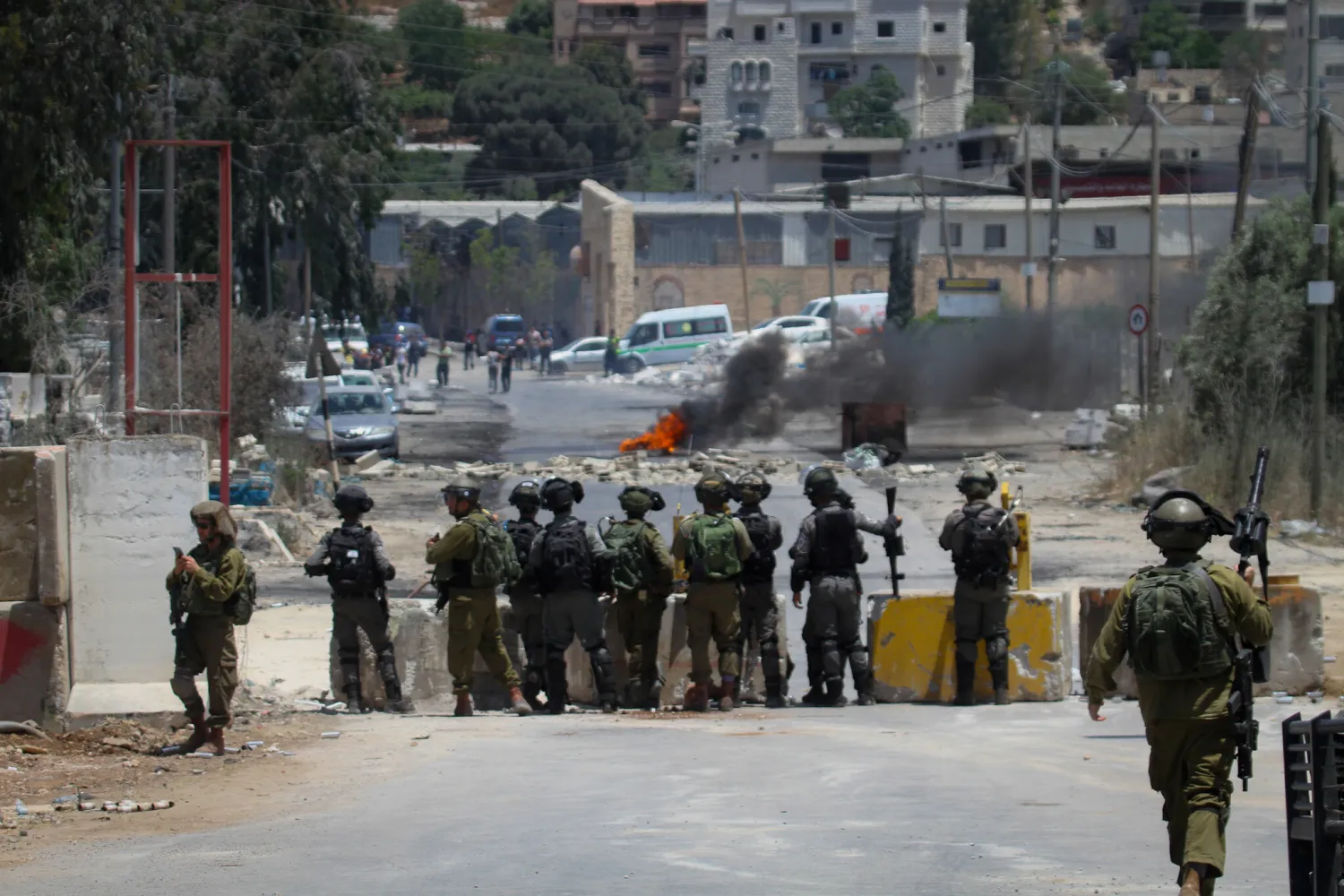Israeli troops killed a Palestinian man during a clash in a refugee camp in the occupied West Bank on Thursday, the Palestinian health ministry said.
The fighting rocked the Dheisheh camp near Bethlehem, a ministry statement said, identifying the dead man as Ayman Muhaisen, 29. Contacted by AFP, the Israeli army had no immediate comment.
The Palestinian death was the third within 24 hours after a woman approaching soldiers with a knife was shot early Wednesday, and a man was killed in an Israeli raid in the northern West Bank later that day, AFP said.
The second death came when Israeli troops mounted an incursion into the village of Yabad outside Jenin to demolish the home of the alleged assailant in a March attack that killed five people in the Tel Aviv suburb of Bnei Brak.
The health ministry said the Palestinian died in hospital in Jenin, after being admitted in critical condition, having been "shot by live bullets in the chest and thigh".
Palestinian news agency Wafa said that six Palestinians were wounded in the Israeli raid.
The army added that it had on April 17 informed the family of Diaa Armashah, 27, of the demolition order against the family home.
Israel regularly destroys the homes of individuals it blames for attacks on Israelis.
The practice, which often fuels tensions, has been condemned by critics as a form of collective punishment. Israel insists it deters attacks.
On Wednesday morning, Israeli soldiers shot dead Ghofran Warasnah, 31, near Hebron after she "advanced" towards soldiers with a knife, the army said.
Nineteen people, mostly Israeli civilians -- including 18 inside Israel and a Jewish settler -- have been killed in attacks by Palestinians and Israeli Arabs since late March.
Israeli security forces have responded with raids inside Israel and the West Bank, particularly in the flashpoint northern district of Jenin. Three Israeli Arab attackers and a police commando have died.
Thirty-eight Palestinians have been killed in the West Bank -- suspected militants but also non-combatants, including an Al Jazeera journalist who was covering a raid in Jenin and bystanders.









